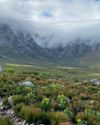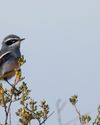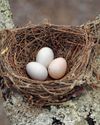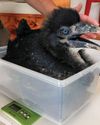
Environmentalists are, in fact, discussing this issue; the need to reconcile the development of renewable energy with the conservation of birds (and other species) is receiving increasing attention globally. International mechanisms such as the Convention on the Conservation of Migratory Species of Wild Animals (CMS) and the Agreement on the Conservation of African–Eurasian Migratory Waterbirds (AEWA) have acknowledged the importance of renewable energy in the battle against climate change. How ever, they also recognise that renewable energy and associated infrastructure (such as transmission lines) may have negative impacts on species and ecosystems. International working groups have been set up in the first place to facilitate collaboration across borders to advance our understanding of the potential environmental effects of renewable energy, and secondly to ad dress the challenges associated with con serving biodiversity while facilitating the transition to lowcarbon energy sources.
Does this international attention suggest there is cause for alarm? Is wind energy re ally killing all our birds? Trump’s claim was almost certainly limited to birds in the USA, but BirdLife South Africa has been keeping track of bird fatalities at wind farms in our country to try to answer that question.
This story is from the {{IssueName}} edition of {{MagazineName}}.
Start your 7-day Magzter GOLD free trial to access thousands of curated premium stories, and 9,000+ magazines and newspapers.
Already a subscriber ? Sign In
This story is from the {{IssueName}} edition of {{MagazineName}}.
Start your 7-day Magzter GOLD free trial to access thousands of curated premium stories, and 9,000+ magazines and newspapers.
Already a subscriber? Sign In

EXPLORING NEW HORIZONS
Keith Barnes, co-author of the new Field Guide to Birds of Greater Southern Africa, chats about the long-neglected birding regions just north of the Kunene and Zambezi, getting back to watching birds and the vulture that changed his life.

footloose IN FYNBOS
The Walker Bay Diversity Trail is a leisurely hike with a multitude of flowers, feathers and flavours along the way.

Living forwards
How photographing birds helps me face adversity

CAPE crusade
The Cape Bird Club/City of Cape Town Birding Big Year Challenge

water & WINGS
WATER IS LIFE. As wildlife photographer Greg du Toit knows better than most.

winter wanderer
as summer becomes a memory in the south, the skies are a little quieter as the migrants have returned to the warming north. But one bird endemic to the southern African region takes its own little winter journey.

when perfect isn't enough
Egg signatures and forgeries in the cuckoo-drongo arms race

Southern SIGHTINGS
The late summer period naturally started quietening down after the midsummer excitement, but there were still some classy rarities on offer for birders all over the subregion. As always, none of the records included here have been adjudicated by any of the subregion's Rarities Committees.

flood impact on wetland birds
One of the features of a warming planet is increasingly erratic rainfall; years of drought followed by devastating floods. Fortunately, many waterbirds are pre-adapted to cope with such extremes, especially in southern Africa where they have evolved to exploit episodic rainfall events in semi-arid and arid regions. But how do waterbirds respond to floods in areas where rainfall - and access to water - is more predictable? Peter Ryan explores the consequences of recent floods on the birds of the Western Cape's Olifants River valley.

a star is born
It’s every producer’s dream to plan a wildlife television series and pick the right characters before filming.